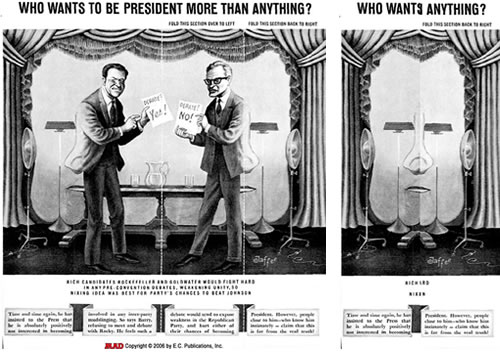|
| This is my post from this week's Once or Twice a Fortnight. |
For those of you who have followed this series over the last five years, you will notice that Puccini’s Trittico was the subject of a four-part series of posts in November-December 2012. Why, when there is so much material to choose from, would I revisit a past topic?
To answer this question, let me begin by pointing to Project 366, a long-term project on my blog that explores the Western Repertoire. In gathering material for this project, I have been reviewing a lot of my past posts – here and elsewhere – as well as my music archive, ensuring that there are musical artifacts available to illustrate all of the topics covered in that project.
It should come as no surprise to those of us who leverage YouTube as a music library that material comes and goes without much notice, and in that sense my music archive plays a pivotal role in my endeavours, ensuring a dependable source of musical material. (In short, if the Internet Archive were to shut down, I would be in deep doo-doo!)
The March installment of my project will be entitled The Trifecta, where I will propose materials that “comes in threes”, and Puccini’s opera is an obvious “fit”. After reviewing my past posts on OTF discussing the triptych, I made the decision to future-proof the performances, as my YouTube links have come and gone. Thankfully, one of the three one-act operas, Gianni Schicchi, already was in my music archive, and over the years I managed to acquire the remaining two segments from the same overall performance, the Decca Trittico featuring soprano Renata Tebaldi (More on that later).
About the Opera
A triptych is a work of art (usually a panel painting) that is divided into three sections, or three carved panels that are hinged together and can be folded shut or displayed open. (I wonder if the old Mad Magazine back-page fold-in qualifies as a triptych…)

The middle panel is typically the largest and it is flanked by two smaller related works, although there are triptychs of equal-sized panels.

The Garden of Earthly Delights - Hieronymus Bosch (ca. 1500)
Puccini’s triptych isn’t necessarily an exploration of that art form in the rigid sense, though it did start off that way – Puccini wanted to write a trio of one-act operas that each reflected one of the parts of Dante's Divine Comedy. Ultimately, the opera deviated from that premise, though its final act, Schicchi, is based on Dante’s epic poem.
I think of Il Trittico more as an intense study of the Verismo style. The key ingredients of Verismo involve believable situations with often tragic twists of fate and Puccini’s trio of subjects fit the mold to a “T”. In Il tabarro, set in contemporary Paris, the Deus ex machina moment comes when Michele opens his opulent overcoat to Giorgetta’s horror; in Suor Angelica, it is both her terrorized realization that suicide will prevent a heavenly reunion with her child, followed by an 11th-hour intervention from a divine source that will ensure that ultimate reunion. Finally, Schicchi turns the tables on greedy relatives, making himself the sole heir of Donati’s fortune, and his “eyes wide open” affirmation that he knows he will be condemned to Hell for his dirty trick but was there a better way of making sure that wealth would be well spent?
Originally released in 1962, our musical shares come from the complete Trittico overseen by the Swedish conductor of Italian birth, Lamberto Gardelli conducting the Orchestra and Chorus of the Maggio Musicale Fiorentino. The operas feature Italian singers in all the roles – notably Miss Tebaldi in all three acts. The exception is Robert Merrill who sings Michele in Il tabarro. Fernando Corena, who sings the all-important title role in Gianni Schicchi, was born in Geneva to an Italian mother and a Turkish father - thus he was at least half-Italian
From a recording technology perspective, only Schicchi was recorded in stereo. They still sound excellent. As is often the case in our musical shares of opera, I snapped these from Capital Public Radio podcasts, and I included Sean Bianco’s spoken introductions to all three acts.
:format(jpeg):mode_rgb():quality(90)/discogs-images/R-5209162-1387539178-5128.jpeg.jpg)
Giacomo PUCCINI (1858-1924)
Il trittico (The Triptych, 1918)
A collection of three one-act operas
Orchestra e coro del Maggio Musicale Fiorentino
Lamberto Gardelli, conducting
Discogs URL - https://www.discogs.com/Tebaldi-Simi...elease/5209162
Act One: Il Tabarro [Original OTF Post]
Italian libretto by Giuseppe Adami
:format(jpeg):mode_rgb():quality(90)/discogs-images/R-5209162-1387539253-6209.jpeg.jpg)
Synopsis and Libretto – http://www.opera-arias.com/puccini/il-tabarro/
Act Two – Suor Angelica [Original OTF Post]
Italian libretto by Giovacchino Forzano
:format(jpeg):mode_rgb():quality(90)/discogs-images/R-5209162-1387539313-6344.jpeg.jpg)
Synopsis and Libretto – http://www.opera-arias.com/puccini/suor-angelica/
Act Three – Gianni Schcchi [Original OTF Post]
Italian libretto by Giovacchino Forzano
:format(jpeg):mode_rgb():quality(90)/discogs-images/R-5209162-1387539355-2101.jpeg.jpg)
Synopsis and Libretto – http://www.opera-arias.com/puccini/gianni-schicchi/
(These performances were edited from Capital Public Radio podcasts, available on the Internet Archive. All performances include a spoken introduction from commentator Sean Bianco.)

No comments:
Post a Comment